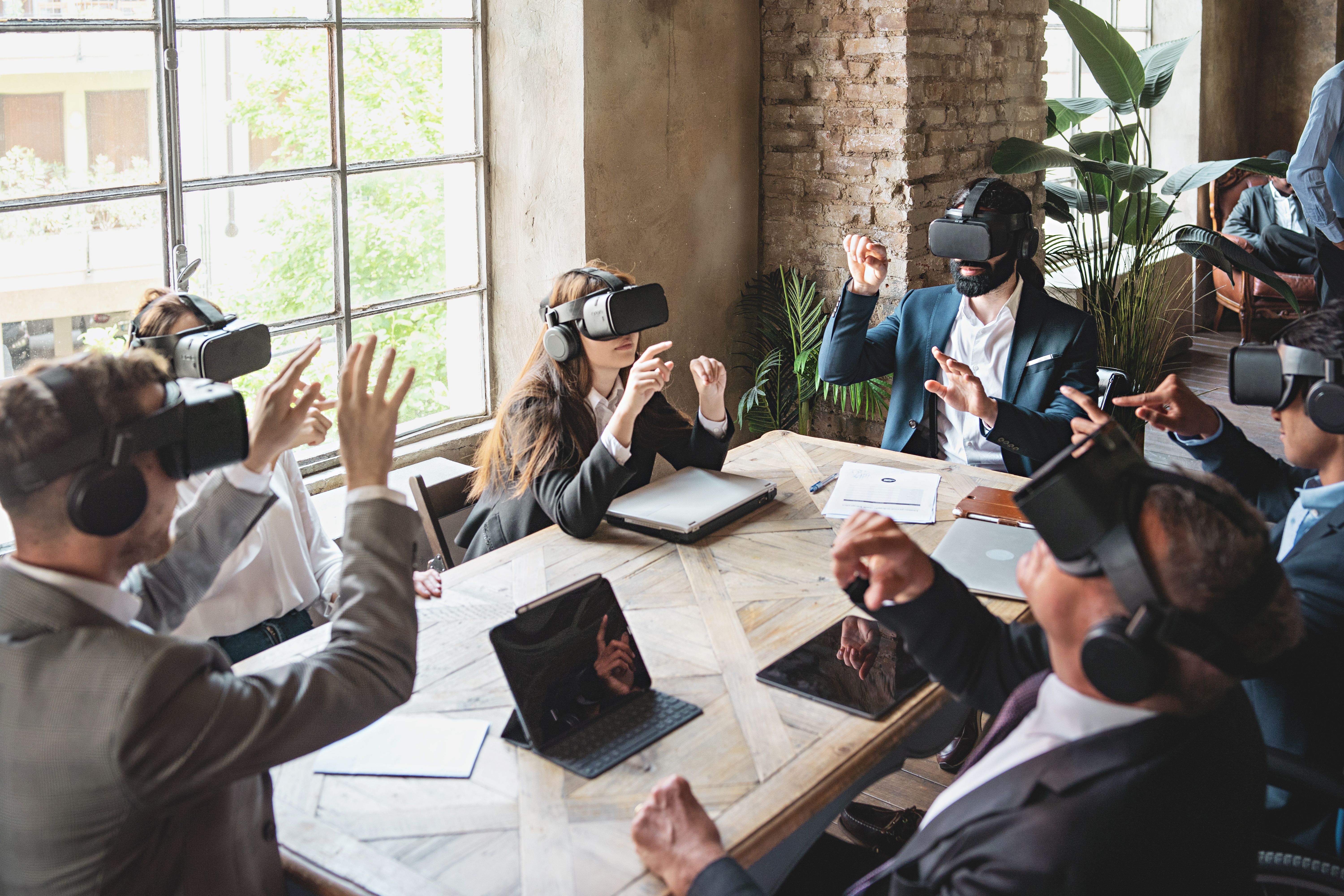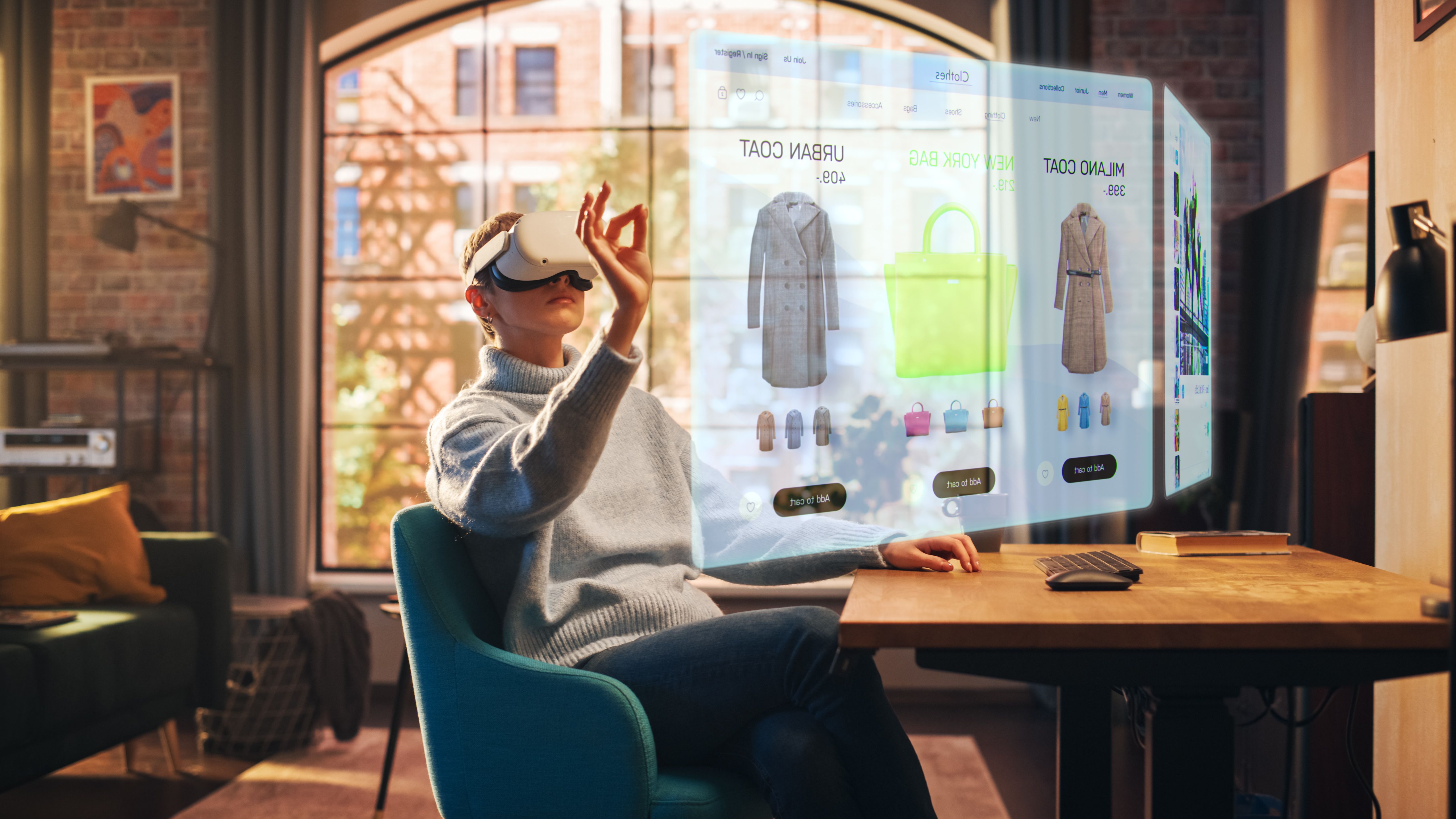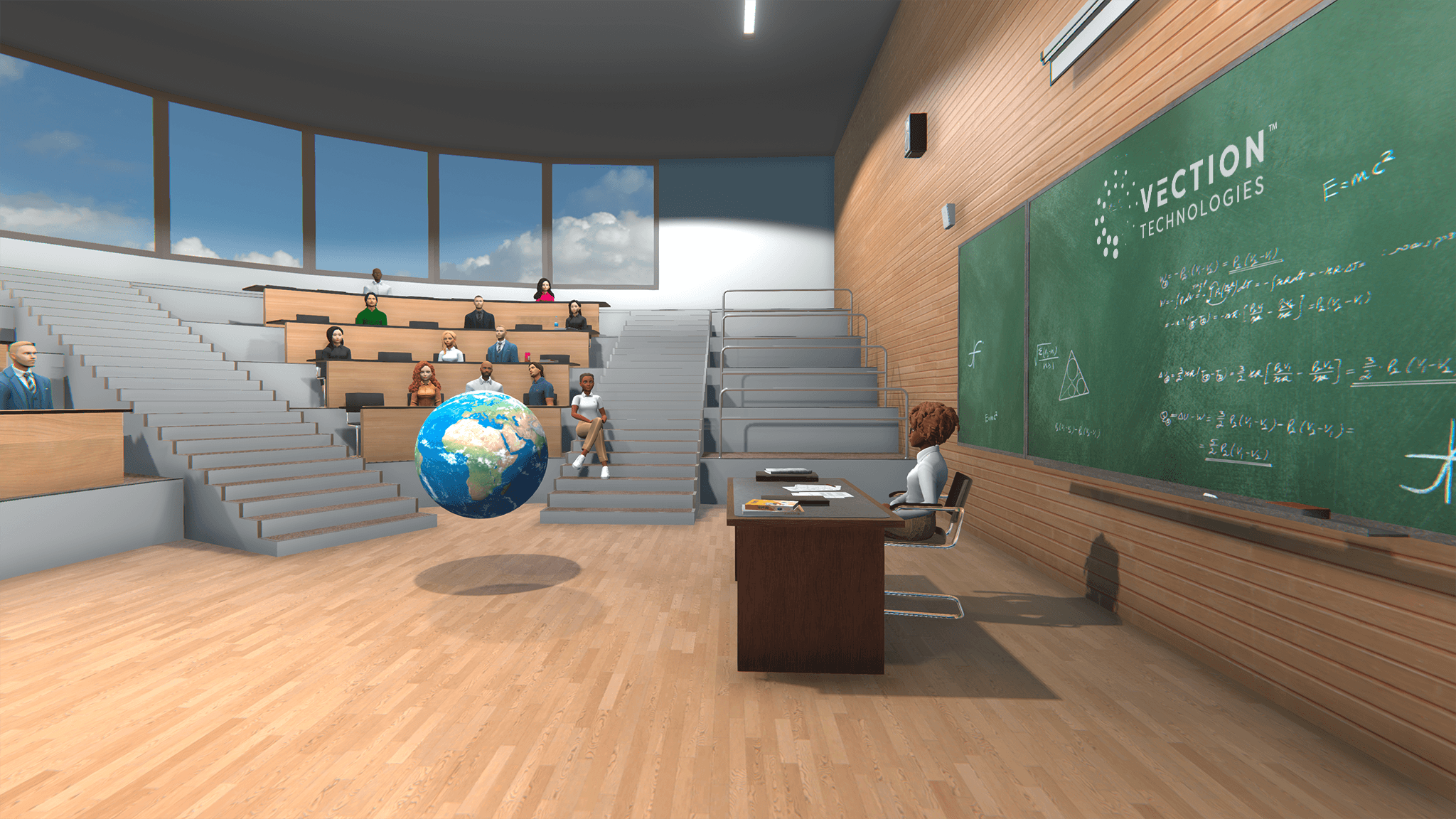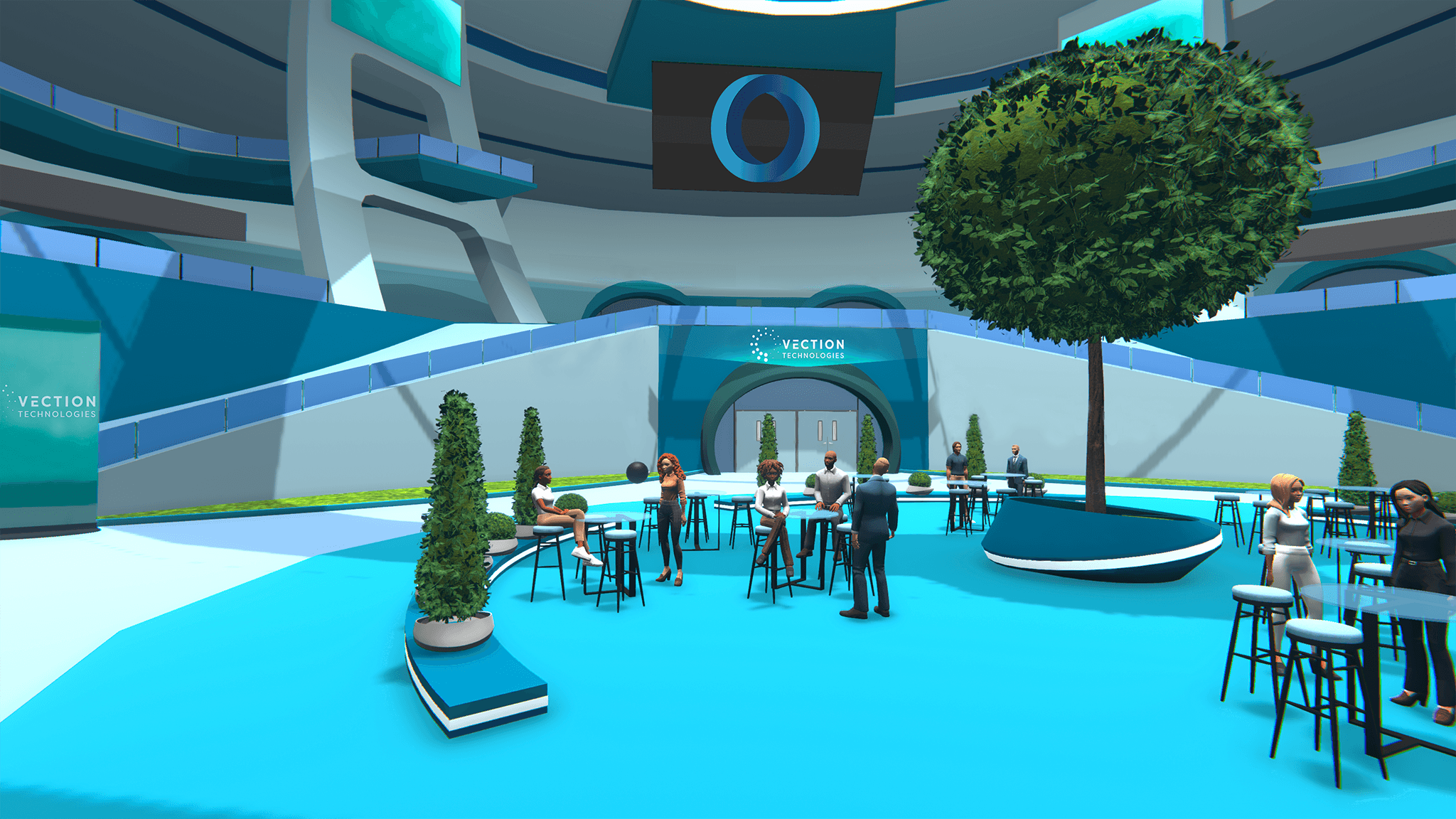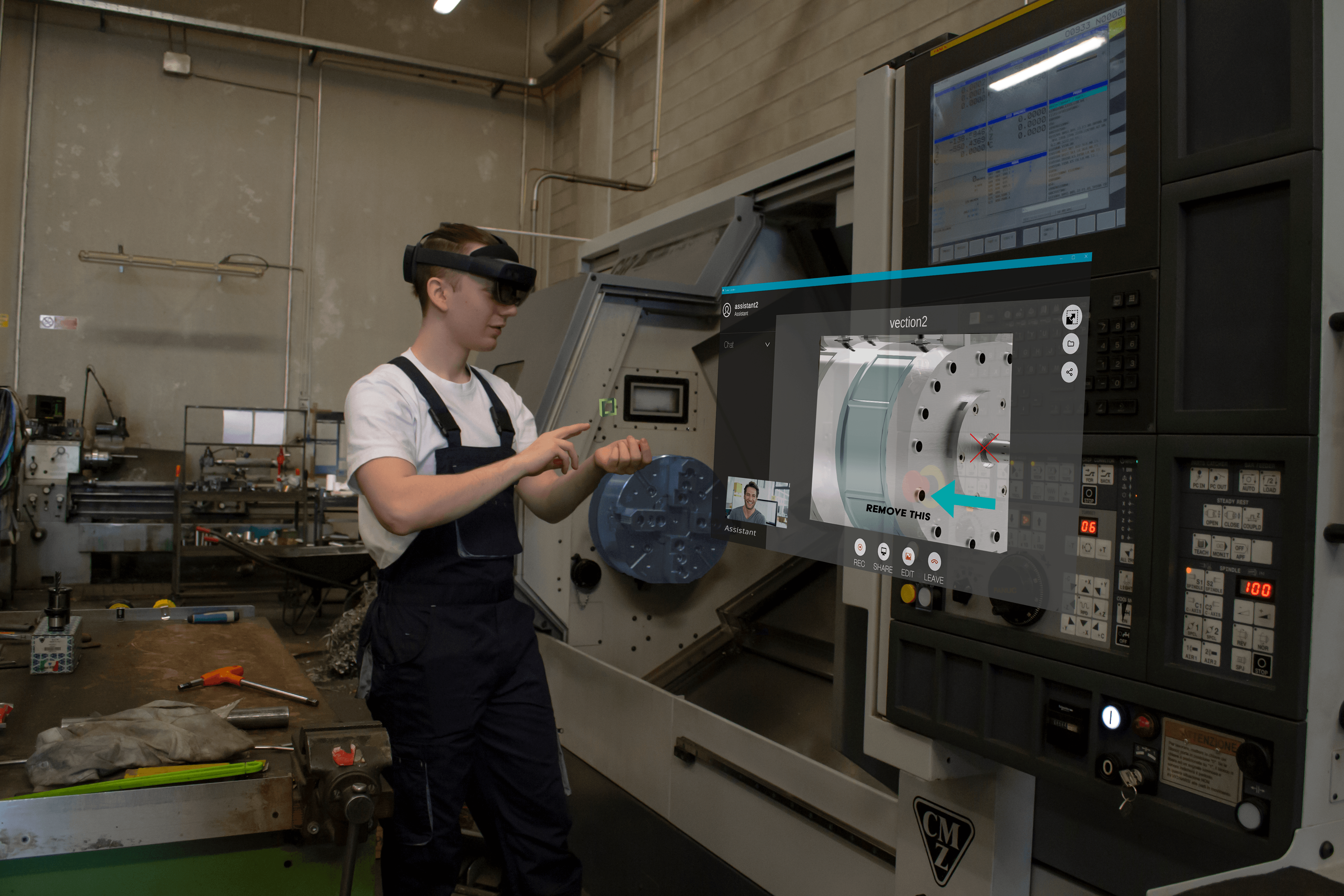As business and IT leaders, you need to be aware of the latest trends in technology. The metaverse is one trend that you should be watching closely. The metaverse is a virtual reality world that allows users to interact and engage with each other immersively, unlike today’s Internet. Businesses can use the metaverse to create immersive entertainment experiences, conduct eCommerce transactions, educate, and train employees, and much more. In this blog post, we will explore ten fascinating examples and applications of how businesses are using the metaverse for innovation and growth.
What is the Metaverse?
The "metaverse" is a term from Neal Stephenson’s science fiction novel Snow Crash. It refers to a shared virtual reality space where users can interact with each other and with digital objects.
While the metaverse is often compared to the Internet, it is quite different. Unlike the Internet, which is primarily a text-based medium, the metaverse is designed to be immersive and interactive. Think of it as a cross between the virtual world of Second Life and the virtual reality of the holodeck on Star Trek.
The metaverse is sometimes called Web 3.0 since it represents the next generation of the World Wide Web. Just as the invention of the graphical user interface transformed how we interact with computers, so will the metaverse revolutionize how we interact with each other and with digital information.
In many ways, it has the potential to be even more transformative than the Internet since it will allow people to connect in completely immersive ways.
How Can Businesses Take Advantage of the Metaverse?
The metaverse has the potential to revolutionize commerce, communication, and entertainment, and businesses are starting to take notice. There are several ways that businesses can take advantage of the metaverse.
One is by creating virtual storefronts where customers can browse and purchase products. Another is by developing virtual experiences that allow customers to interact with brands in new and innovative ways.
Finally, businesses can use the metaverse to connect with customers more personally, building loyalty and customer base. As the Metaverse continues to evolve, businesses that can capitalize on its potential will have a significant advantage over their competition.
10 Potential Applications of the Metaverse for Businesses
Here's a list of 10 fascinating applications of the metaverse for businesses:
Immersive entertainment
Metaverse has been interpreted as cutting-edge technology in the entertainment industry. For instance, virtual reality, an immersive technology associated with the metaverse, can be utilized in theme parks.
Virtual parks can be appreciated by people who don’t want to embark on long journeys but still want to enjoy the excitement of events and exhibitions, like sports or concerts.
E-commerce
The metaverse is a new frontier for e-commerce. By creating a virtual space where buyers and sellers can meet and interact, the metaverse has the potential to revolutionize how we do business.
Here are just a few of the ways that the metaverse can be used for e-commerce:
Product demonstrations and showrooms. The metaverse can be used to create virtual showrooms where products can be displayed and demonstrated. This is a great way to give potential customers a firsthand look at your offer.
Online auctions. The metaverse can be used to host online auctions, making it easy for buyers and sellers to connect and transact business.
Virtual storefronts. The metaverse allows you to virtual storefronts, giving customers a new and convenient way to window shop and buy items.
Customizable shopping experiences. The metaverse can be customized to give customers a unique shopping experience tailored to their individual needs and preferences.
Increased customer engagement. The metaverse provides an immersive environment that encourages customer engagement and interaction. This can lead to increased sales and customer loyalty.
Real Estate
The potential applications of the metaverse are limitless, but one area where it shows particular promise is in the field of real estate. For example, the metaverse could be used to create virtual showings of properties for potential buyers. Realtors can also use a metaverse to host open houses, allowing interested parties to attend from anywhere in the world.
In addition, the metaverse can be applied for marketing purposes, such as creating virtual tours or simulations of what it would be like to live in a particular property. The possibilities are endless, and the potential benefits for both buyers and sellers are significant.
Business Operations
Companies can use the metaverse for marketing, product development, customer service, and training. The metaverse offers many benefits for businesses, including increased flexibility, improved collaboration, and enhanced customer engagement.
Education and Training
The metaverse can be applied to create immersive, realistic environments where learners can practice skills and knowledge without the risks associated with real-world scenarios.
The metaverse also offers the potential for connecting learners with experts from around the world, providing them with access to a wealth of experience and expertise.
Moreover, the metaverse can be used to create custom content and experiences tailored to each learner's individual needs. "The metaverse facilitates an immersive campus life, where learners wearing VR headsets enter the virtual campus or university to learn, explore, and socialize," explains Sheila Jagannathan.
In Nairobi, the Kenya-KAIST virtual campus will be built to extend education across continents, allowing students to learn effectively.
**Contact us today to learn more about how EnWorks can help you improve your training, manufacturing, and maintenance processes. Our augmented reality powered visual assistance can help increase workforce output and safety. Let us show you how EnWorks can help you achieve your goals.
**
Remote sales and meetings
The metaverse can provide several benefits for remote sales and meetings. First, it can provide a virtual environment where sales representatives can interact with potential customers. This can help to reduce the need for travel and can also allow customers from around the world to participate in sales meetings.
Additionally, the metaverse can be used to create virtual meeting spaces in which participants can interact in real-time. This can be helpful for companies that have employees located in different parts of the world or that need to hold meetings that involve participants from multiple locations.
If you're looking for a way to take your content to the next level, try 3DFrame. With its immersive virtual worlds, 3DFrame makes it easy to present your content in a way that will engage and wow your audience. So why wait? Learn more about 3DFrame.
Online 3D/AR configurator tools
The metaverse can be used in online 3D/AR configurator tools to create a more immersive experience for the user. The user can be placed in a virtual space where they can interact with the product they are configuring. This can give them a better idea of how the product will look and how it will fit into their environment.
Also, the metaverse can provide several benefits for online 3D/AR configurator tools. These benefits include immersion, interactivity, and contextualization.
An example of online 3D/AR configurator tools in which the metaverse can be applied is Autodesk Homestyler. This tool allows users to create a 2D or 3D model of their home and then view in an immersive environment.
Do you want to offer your customers a next-generation shopping experience? With Vection Technologies' configurator, you can. Our configurator can manage unlimited product variations for e-commerce, from the web to mobile devices. Plus, we can add augmented reality (AR) to unlock next-gen visualization experiences. So, if you're ready to take your business to the next level, contact us today. We'll be happy to discuss your specific needs and tailor a solution that's perfect for you.
Remote and hybrid workplaces
The metaverse offers many potential applications and benefits for remote and hybrid workplaces. These include, but are not limited to:
Communication and collaboration. The metaverse can provide a virtual space for remote employees to communicate and collaborate. This can help improve communication and teamwork and facilitate knowledge sharing.
Training and development. The metaverse can be used for training and development purposes. Employees can participate in online training courses or can practice their skills in a virtual environment.
Social interaction. The metaverse can help to promote social interaction among remote employees. This can help to build team spirit and strengthen relationships.
Entertainment. The metaverse can be used for recreational purposes, such as playing games, watching movies, or participating in social activities. This can help to keep employees engaged and motivated.
Advertising, branding, and marketing opportunities
The metaverse can provide several benefits for advertising, branding, and marketing businesses. For example, businesses can use virtual worlds to create and test new products or services before launching them to the public.
Virtual worlds can also be used to create interactive marketing campaigns that allow customers to explore and interact with products and brands in a virtual environment.
Likewise, businesses can use virtual worlds to build relationships with customers by providing a space where customers can socialize and engage with each other and with the business.
Customer experience
The metaverse can provide a variety of applications for customer experience.
For example, it can be used to create virtual representations of customers that can be utilized to interact with them in real-time. This can give customers a more personal and engaging experience, improving their satisfaction and loyalty.
Additionally, the metaverse can be used to create immersive customer experiences, such as virtual tours or product demonstrations. These experiences can help customers learn about products and services and increase their interest in purchasing.
